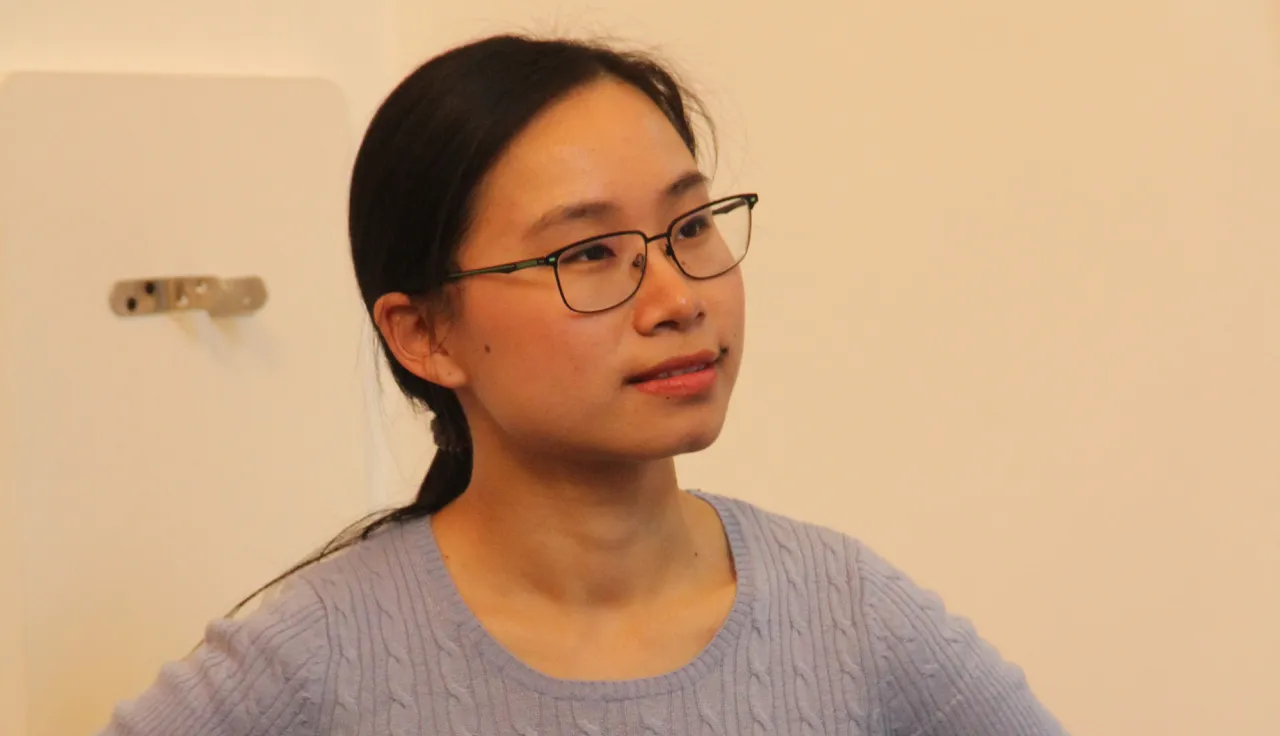A new future ahead

- A story on the 10th Anniversary of IHL Moot Court
Song Tianying was one of the mooters from China University of Political Science and Law for the International Humanitarian Law Moot Court in 2008. She not only participated in that championship, but also won the award of Best Mooter. She never imagined that her decision to participate in the competition would open a door to a brand new future.
Back in 2008, Tianying was still an undergraduate in China University of Political Science and Law (CUPL). Attracted by a notice recruiting mooters for the IHL Moot Court team, she decided to go for the interview, fully confident in her English proficiency (the main qualification required). One of the two interviewers was Prof. Zhu Lijiang, the coach who eventually led the team to win the competition; the other was Prof. Ling Yan, who later became Tianying's postgraduate tutor.
Recalling the preparation in winter eight years ago, Tianying said: "Although I only had a smattering of IHL knowledge at the outset, I was super confident during the competition, and applied all that I had learnt and was fearless simply through ignorance. Now I get a cold sweat just thinking about it!"
"At that time, Prof. Zhu Lijiang told us that the actual competition was different from practice, and that the more you debated, the better you would perform. So it was not surprising that my mind basically went blank during the first round. Luckily one of the judges, Richard Desgagné, then ICRC regional legal advisor for East Asia and South East Asia, was kind enough not to ask me a lot of questions. I barely survived the first round."
After the competition, Tianying felt both extremely excited and totally exhausted, believing she would no longer need to deal with IHL on a daily basis. Little did she know that her experience would take her to a new beginning, for when she and Richard met again several years later, they became colleagues with Richard being her boss.
Excellent performance in the competition won her a postgraduate recommendation from her own college, with Prof. Ling Yan as her tutor. Later, she worked as an intern for six months in the International Criminal Court in The Hague, where she became wrapped up in the theory and practice of international criminal law and IHL, and increasingly attracted by the broad horizon and diverse culture of international organizations. She applied for an internship in the East Asia delegation of the ICRC and joined the ICRC family after graduation.
A reversal of roles
Since Tianying had participated in the IHL Moot Court, one of her major tasks was to organize the competition. Reflecting on this change of roles she said: "I felt enormous pressure when I was a mooter, but now as an organizer, I discovered that being a mooter was the easiest part. As an organizer, I had to communicate with more than 30 teams, over 20 judges, host schools, and communications departments, and was on 24-hour standby for any emergency during the competition."

December 05, 2015, the 9th IHL Red Cross Moot Court was held in Xiamen. Song Tianying works with Zhang Binxin, associate professor from Xiamen University. CC BY-NC-ND /ICRC/Yifei SUN
One year, at the beginning of a round, an American mooter from the Centre for Chinese and American Studies in Nanjing University suddenly started to vomit due to food poisoning and couldn't continue the competition. Everyone was at a loss when a team mate, Chang Yuqing, said calmly that she would present the oral argument for her partner. This was indeed a courageous decision since each of the two mooters in every team was responsible for completely different presentations, and would normally only prepare for their own part and relevant questions. For Yuqing, this would mean more than 40 minutes of continuous statement and a series of tough questions from the judges – an undertaking that would be both physically and intellectually challenging. Much to everyone's relief, Yuqing took the situation calmly and completed the presentation with ease.
Though emergencies are properly addressed, mistakes are still inevitable due to the huge workload and initial lack of experience. For instance, to ensure impartiality during the competition, all memorials sent to the judges by the host before the competition must not include the names of universities. Once, however, on the morning of the first day of the competition, Tianying suddenly discovered that all the memorials about to be sent still showed the names of universities. She immediately motivated volunteers to help her open the envelopes and tear off the first page showing school names. Had Tianying not noticed the error, the impartiality of the judges might have been questioned, leading to inconceivable consequences.
Never-ending exploration
In 2016, Tianying was granted the M.C. Bassiouni Justice Award for outstanding service to the adjudication, prosecution, investigation, documentation, defence, analysis, diplomatic strategies, or study of core international crimes such as war crimes, crimes against humanity and genocide. One of the reasons why Tianying won the award was for her "substantial contribution over the years to the dissemination of international humanitarian and criminal law by organizing international moot court competitions in East Asia".

Portrait of Song Tianying by Roberto Caruso
This year – the tenth anniversary of the IHL Moot Court Competition – Tianying made the difficult decision to continue her study and research on IHL in Europe, moving on to a new journey to realize her dream. Her progress during her years with the Moot Court will serve as a shining example for every student who follows.



